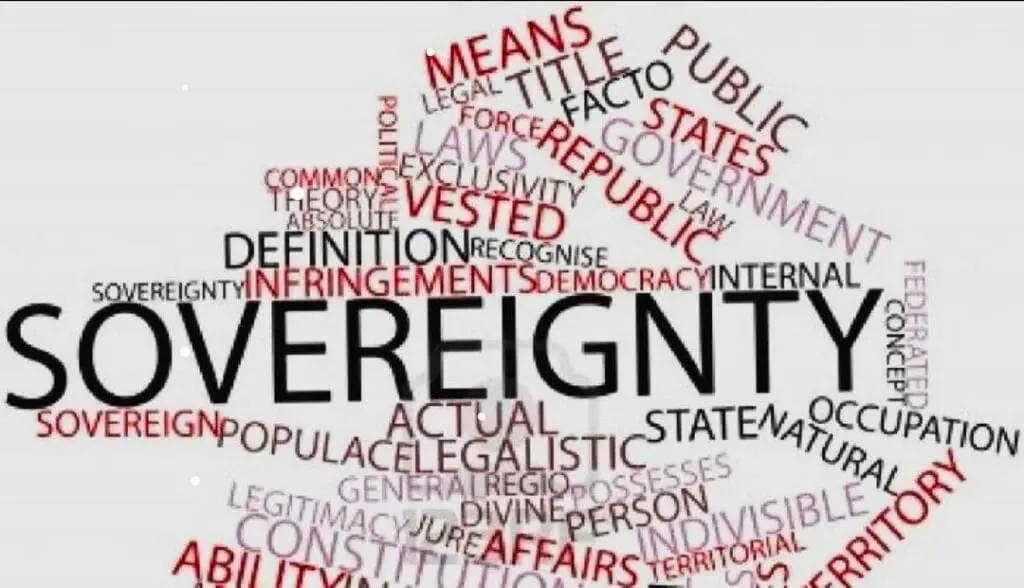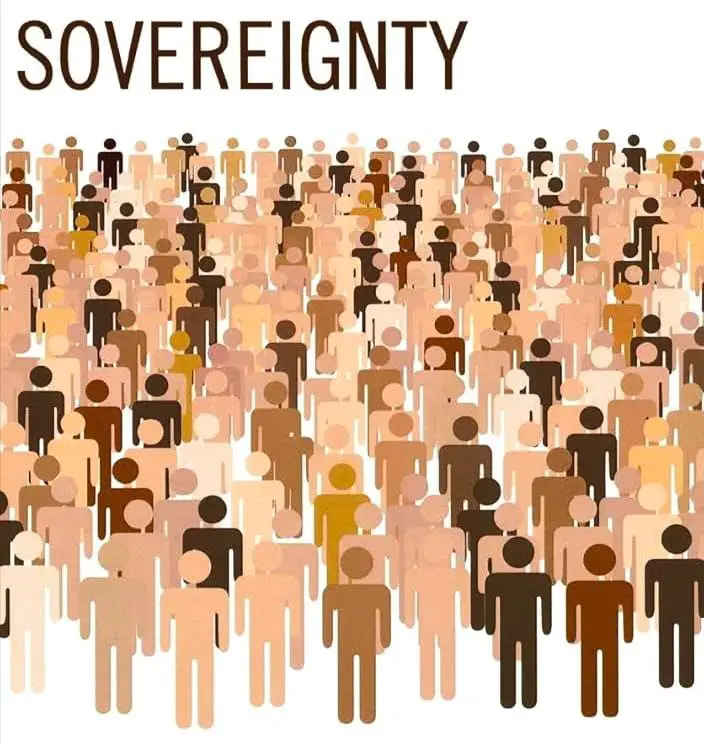Meaning of Sovereignty:
Sovereignty refers to the ultimate authority and power of a state to govern itself or another state. It denotes a state’s full right and power to make laws, execute decisions, and conduct foreign policy without interference from external authorities. Sovereignty is a core principle in international law, symbolizing the independence and territorial integrity of a nation.

Characteristics of Sovereignty:
- Supremacy: Sovereignty implies the absolute power of the state over all other authorities within its territory. No other body can override the sovereign authority.
- Independence: Sovereignty involves complete autonomy, free from external control or influence in decision-making and governance.
- Permanence: Sovereignty is a permanent attribute of the state and does not change unless the state itself ceases to exist.
- Comprehensiveness: It covers all areas of governance, including legislative, executive, and judicial powers.
- Inalienability: Sovereignty cannot be transferred or surrendered; it is inherently tied to the existence of the state.
- Unity: Sovereignty is indivisible; even in federal systems, the ultimate authority resides with the state as a whole, not with individual entities.
- Exclusivity: Only the sovereign has the legal right to govern, meaning no parallel or competing authority is recognized within its domain.

Types of Sovereignty:
- Internal Sovereignty:
- Refers to the supreme authority within a state. It denotes the state’s capacity to make and enforce laws over its citizens and institutions without interference from outside forces.
- Example: The government of a country controlling its internal policies and legal framework.
- External Sovereignty:
- Refers to the independence of a state from external control. It highlights the ability of a state to conduct relations with other states on equal terms without interference from foreign powers.
- Example: A country signing treaties or engaging in diplomacy without being dominated by another state.
- Legal Sovereignty:
- Relates to the legal authority embodied in the constitution or the lawmaking body of the state. It is the power to enact, modify, and enforce laws.
- Example: The power of a parliament to pass laws that bind the population.
- Political Sovereignty:
- Refers to the ultimate political authority in a state, often reflecting the will of the people. It is closely associated with democratic principles, where the population indirectly exercises sovereignty through elected representatives.
- Example: Democratic elections and the government’s accountability to the electorate.
- Popular Sovereignty:
- Based on the principle that the authority of the government is created and sustained by the consent of its people, through elected representatives. It is a cornerstone of democratic governance.
- Example: Citizens voting in elections to choose their leaders.
- De Jure Sovereignty:
- Refers to legal sovereignty, where a state is formally recognized by others as having sovereign powers, even if it might not fully exercise them.
- Example: A government in exile that is still recognized internationally as the legitimate authority.
- De Facto Sovereignty:
- Refers to actual, practical sovereignty in terms of control, even if it is not legally recognized. It can occur in situations where non-state actors, or breakaway regions, exercise control over a territory.
- Example: A rebel group controlling a region without international recognition.
- Territorial Sovereignty:
- Denotes the state’s absolute power over its physical territory, including its land, airspace, and territorial waters.
- Example: A country controlling its borders and regulating access through immigration laws.

Kinds of Sovereignty (Based on Historical Evolution):
- Absolute Sovereignty:
- Sovereignty without any limitations or constitutional constraints, often associated with monarchies or authoritarian regimes.
- Example: The rule of absolute monarchs in Europe during the Middle Ages.
- Limited Sovereignty:
- Sovereignty limited by a constitution, law, or international agreements. In modern democratic states, the power of the sovereign is checked by other institutions.
- Example: The division of powers between the executive, legislative, and judiciary in constitutional democracies.
- Popular Sovereignty:
- The notion that ultimate political power rests with the people. This type of sovereignty is the foundation of democratic systems.
- Example: The U.S. Constitution begins with “We the People,” reflecting popular sovereignty.
- Divided Sovereignty:
- In federal systems, sovereignty may be shared between central and regional governments, with certain powers reserved for each level.
- Example: The division of powers between federal and state governments in the United States.
Sovereignty is central to the functioning of states and their relationships with each other in the international system. It ensures autonomy, while also requiring states to balance internal control with participation in global governance.

